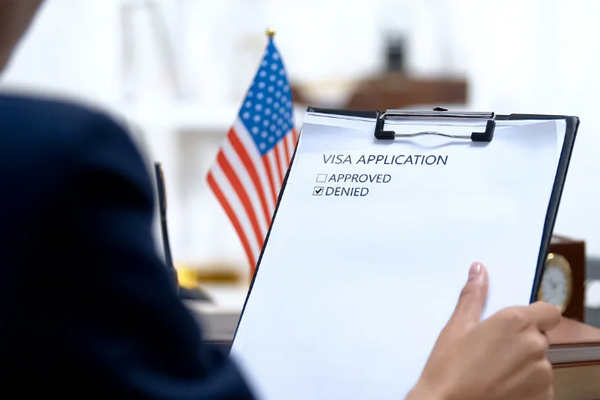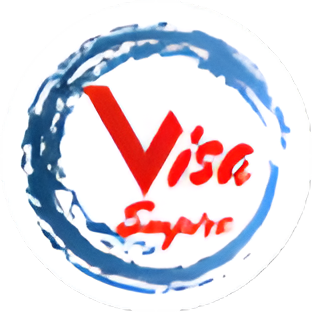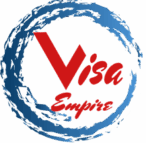How to Choose a Course That Supports Visa Approval

Choosing a course isn’t just about passion or paycheck. For international students, it’s a visa decision. The right course can make the difference between a smooth visa approval and a frustrating refusal.
Here we present before you a step-by-step guide that throws light on how to choose a course for visa approval and highlights the best courses for student visa approval. It also explains why course choice matters with actionable tips you can use today.
Let’s get started.
Why Course Selection Matters For Visa Applications
Immigration authorities look beyond your university offer. They evaluate whether your chosen program fits official student visa course requirements, whether the provider is recognised, whether the course length and level make sense for your background, and whether your study plan appears genuine.
In several countries ( such as Australia, and Canada), the course itself, inclusive of its level, registration, and relevance to your profile, is the main part of eligibility.
Key Rules to Check Before You Apply
1. Provider & course registration- Some countries require courses to be on an approved register (e.g., Australia’s CRICOS). If a course/provider isn’t on that list, your application will be invalid.
2. Course level & academic progression- The level of study should logically follow your previous qualifications. Big jumps at times can raise questions about genuine intent.
3. Work and post-study rights linked to the course- Some programs do make you eligible for post-study work permits (e.g., Canada’s PGWP-linked programs), which can influence acceptance priorities. Recent policy changes can add or remove eligible fields. Thus, you must always verify the current list.
4. Genuine student assessments- Authorities increasingly ask applicants to explain why they chose the course and how it fits their career goals. You can certainly expect some targeted questions about course choice in some countries.
How to Choose the Right Course- Practical Checklist
You can rely on the following checklist while researching options to make sure you’re choosing a course that supports visa approval:-
- Confirm legal recognition: Check the official government list (CRICOS, DLI lists for Canada). If it’s not listed, don’t apply.
- Match your background: Choose a program that follows logically from your previous study or work or prepare a strong, believable explanation for a career change.
- Show clear career intent: Draft a short study plan explaining how the course leads to specific roles or further study (helps with the genuine student test).
- Prefer demand-driven fields: Programs related to healthcare, STEM, IT, engineering, and certain business specializations often align well with labor market needs. This in turn can strengthen the case for post-study work and longer terms of residence. (You must always double-check country-specific lists.)
- Check post-study options: If your goal is migration or work after study, choose to go with courses that are explicitly eligible for post-study work permits in your target country.
What are the Best Courses for Student Visa Approval?
There’s no universal “best” course. The right choice depends on the destination and personal profile. However, some program types commonly lead to higher visa success because they are regulated, skill-focused, and clearly career-oriented. Those are:-
- STEM (Science, Technology, Engineering, Mathematics)- It is widely in demand and is often linked to work visas or extensions.
- Nursing & allied health- It has a strong labor demand in many countries and is clearly an employable skillset.
- IT & data science- These are short courses with clear career pathways.
- Professional business programs (accounting, supply chain, HR) with accreditation.
- Vocational/technical courses that are CRICOS/DLI-approved and lead to clear employment outcomes.
You can label the aforementioned as high visa success rate courses only after checking the destination’s current published lists and labour market priorities. Policy changes can reshuffle the “best” fields quickly.
Common Mistakes That Trigger Refusals
You must avoid the following pitfalls at all costs. They frequently lead to visa rejection due to wrong course selection:-
- Choosing a course that’s not recognised by the destination’s visa system.
- Picking a program with no clear link to your previous education or career that you can’t justify in your statement.
- Applying for extremely short, “tourist-style” courses when you claim long-term study intent.
- Ignoring changes in rules (e.g., PGWP eligibility lists or genuine-student checks). Always use official sources.
How Course Choice Affects Visa Approval- Short Explainer
Immigration officers assess consistency.
Your background → course level/content → financial capacity → post-study intent.
If any link is weak, the officer may suspect the course is a pretext for migration, and that leads to refusal. That’s why course eligibility for a visa and a clear, evidence-backed rationale matter as much as the offer letter itself.
Tips to Strengthen Your Application Based on Course Choice
1. Document the link between past experience and the program. Use transcripts, reference letters, and a concise study plan.
2. Pick accredited providers and confirm the course is on the government’s approved list. Screenshots and citation of the provider’s listing can help.
3. Align with labour market evidence. You must cite labour shortages or growth in your field (local job boards, government labour reports) if migration is your long-term aim.
4. Consider avoiding “uncertain” choices. Courses with vague career outcomes can trigger extra scrutiny.
5. Consult a regulated advisor (like Visa Empire) for country-specific quirks (PGWP lists, Genuine Student Test formats, sponsor rules). Professional advice reduces avoidable mistakes.
Final Checklist Before You Submit
- Is the course listed on the country’s official register? (Yes = go ahead.)
- Can you clearly explain the reason behind choosing this course and how it fits your career?
- Does the course make you eligible for any post-study work pathway you want? (Check the latest PGWP/visa rules.)
- Have you kept evidence (offers, provider registration, labour data, study plan) in one place for the application?
Choosing a Course for Immigration vs. Study Goals
You must strike a balance between your academic interests and your visa strategy. Selecting a course that supports visa approval doesn’t mean sacrificing your goals. It simply means choosing a program that’s credible, recognised, and defensible before an immigration officer. In many countries, recent policy updates make clear explanations about course choice mandatory. Therefore, being prepared is non-negotiable.
If you’d prefer, Visa Empire can review your shortlisted programs and produce a short, customized study plan and evidence pack that addresses student visa application course choice and boosts your chances of approval. We are the best migration agents in Perth and our assistance will surely serve your best interests.
Reach out to us for a tailored review. We’ll check eligibility, post-study implications, and how to present your case convincingly.
Note: Immigration rules change frequently. Thus, before you apply, double-check the destination’s official immigration site and, if possible, get a short document review from a licensed advisor.



